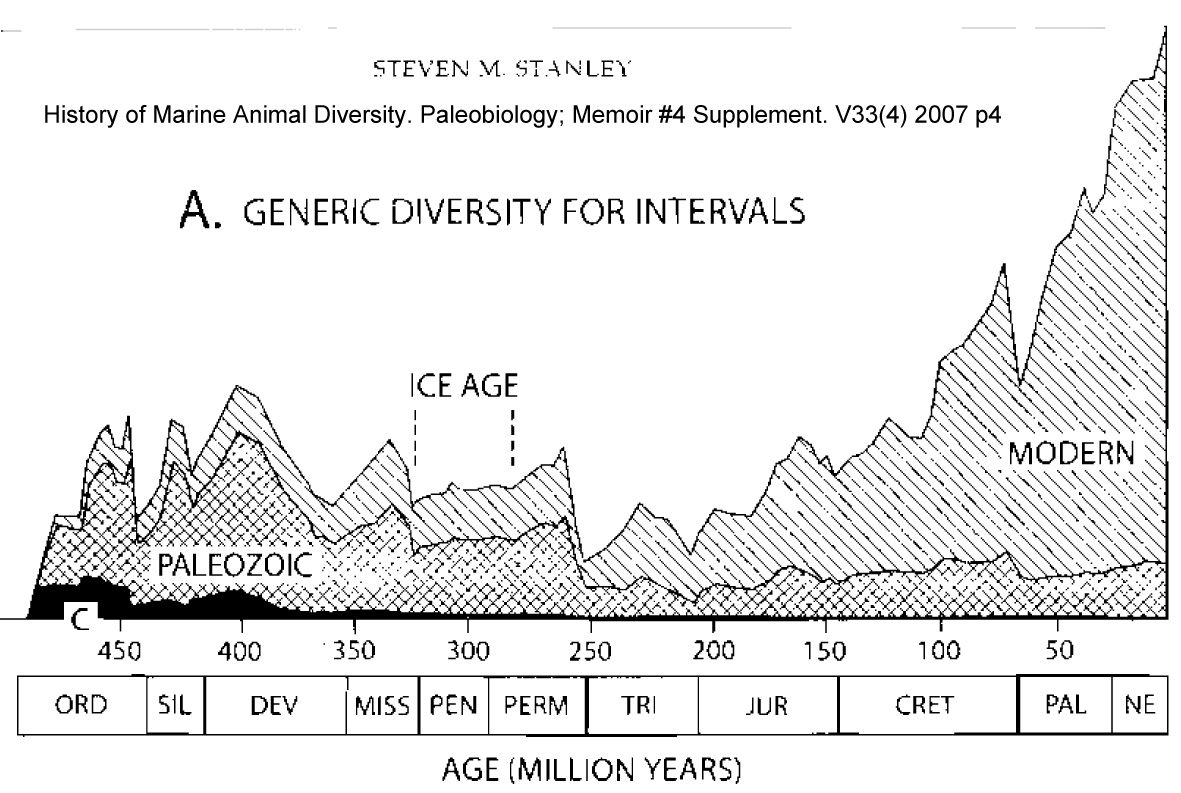Responding to a Teacher with a website of teaching tools (appended below).
K.S.,
I appreciate your noticing the key phrase “ask the dumb questions” in my comment. It’s fishing for better questions generally that I was writing about.
I’m sort of a specialist in the “unasked but obviously unexplained” stuff. Usually we only “see” our own meanings for things, steered by only by our own present questions. So we miss a whole world streaming bye with questions no one knows the answer to never being asked.
I think the main job of a kid is to ask the unasked questions, not to repeat back stock answers. For example we all operate within natural systems that are not organized like our cultural values and stereotypes for them at all. Continue reading What I can’t explain about (__) is …


 It shows two main periods, 250 million years of irregularly steady diversity of primitive animal life, a sharp dip and then 250 million years of exploding diversity of modern animal life… which we in our stupidity are putting a great big dent in!
It shows two main periods, 250 million years of irregularly steady diversity of primitive animal life, a sharp dip and then 250 million years of exploding diversity of modern animal life… which we in our stupidity are putting a great big dent in!